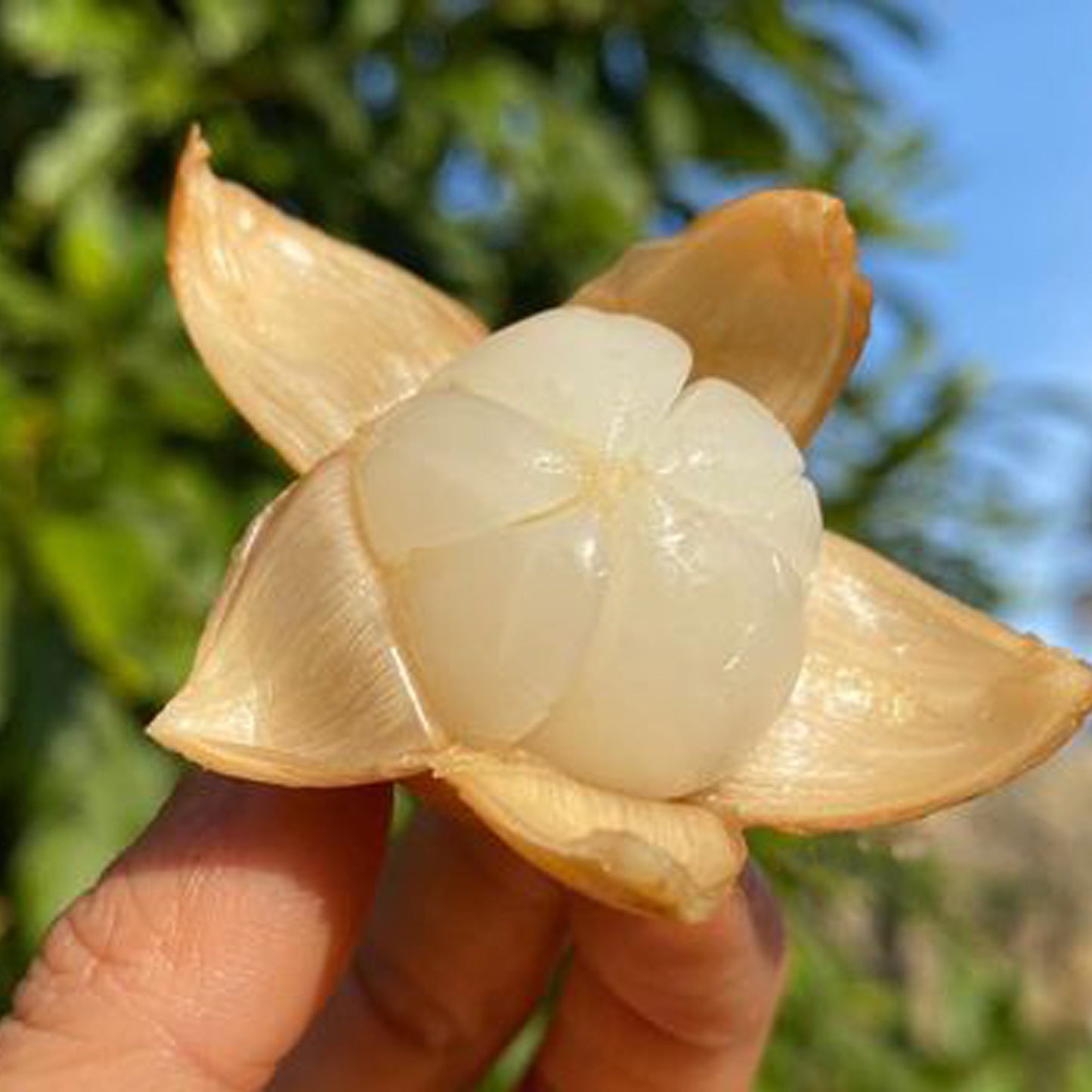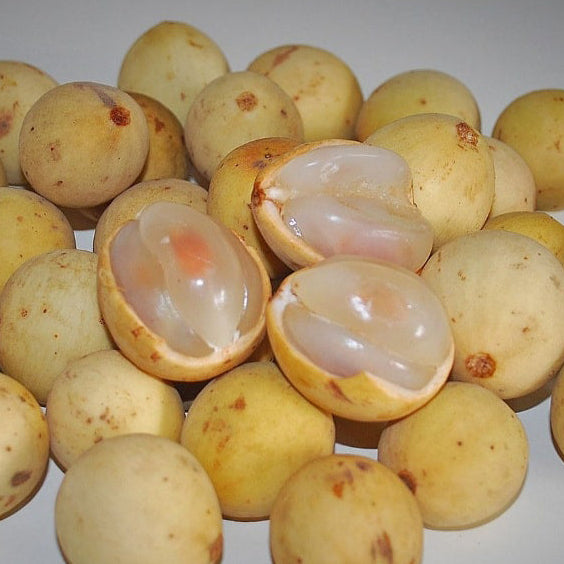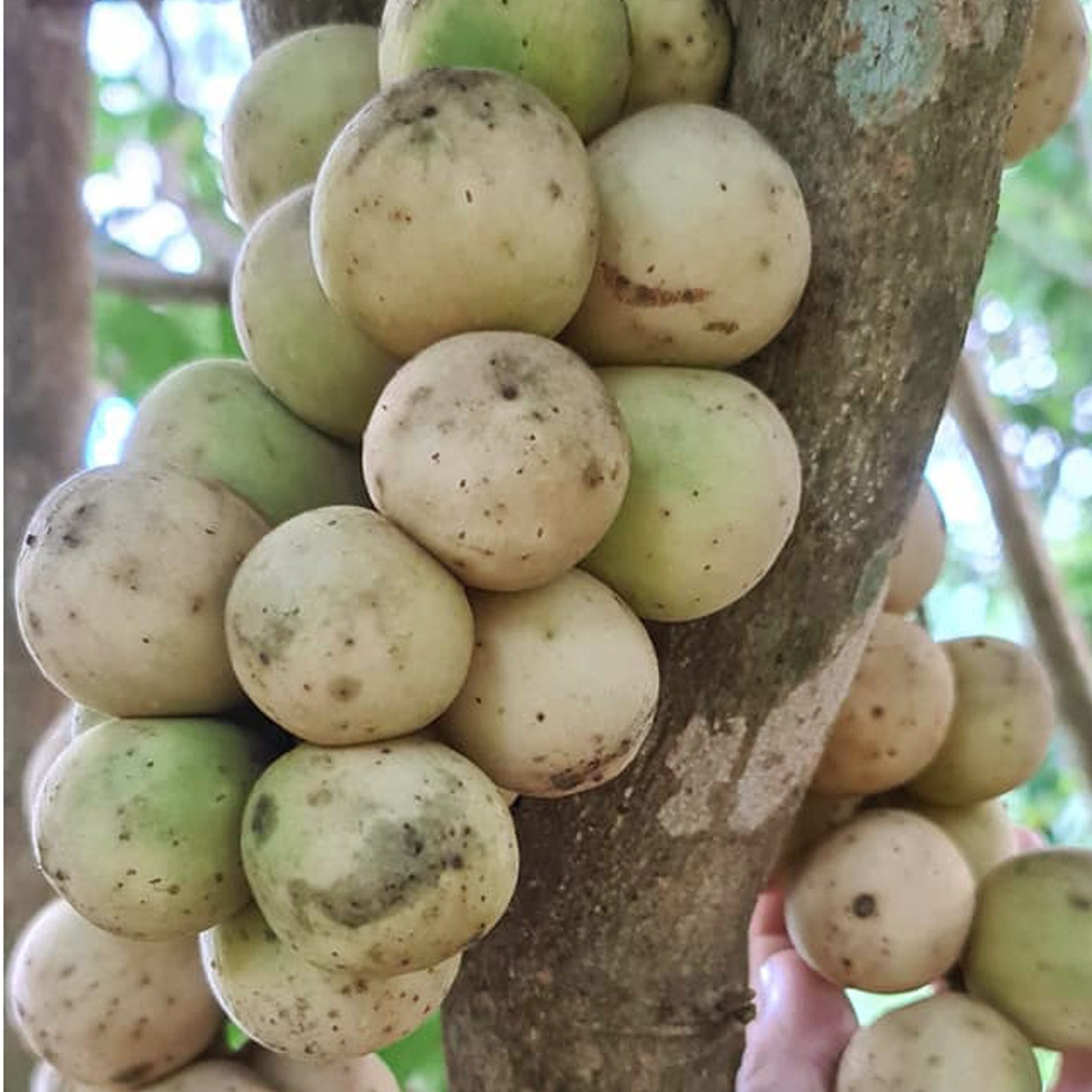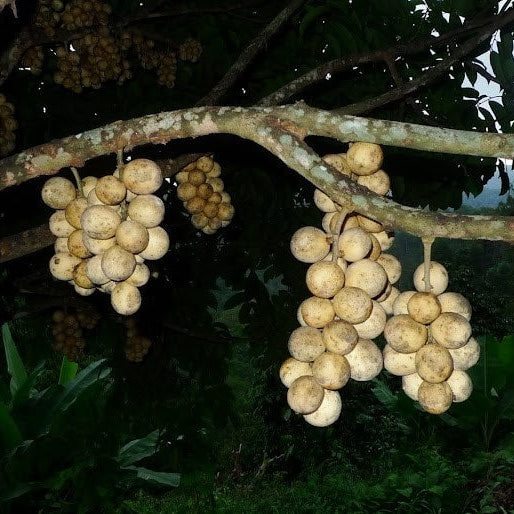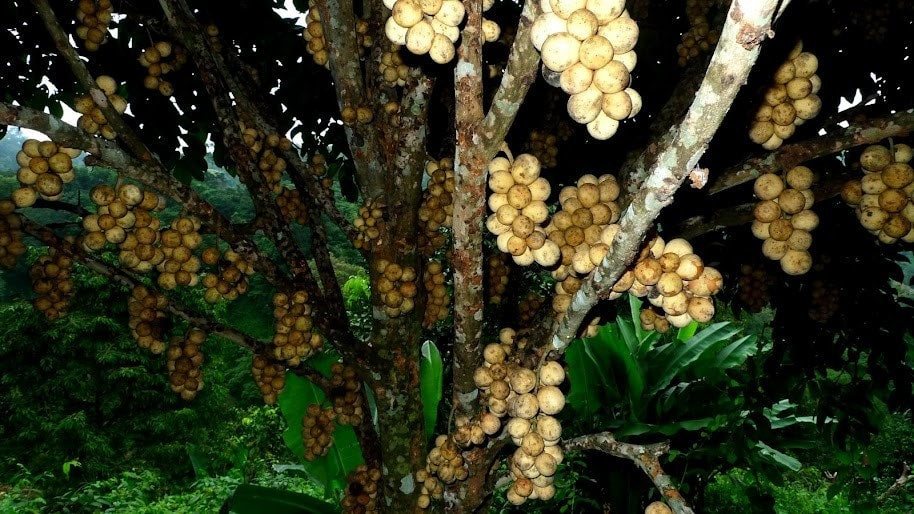Love it? Add to your wishlist
Your favorites, all in one place. Shop quickly and easily with the wishlist feature!
[message]
[title]
[message]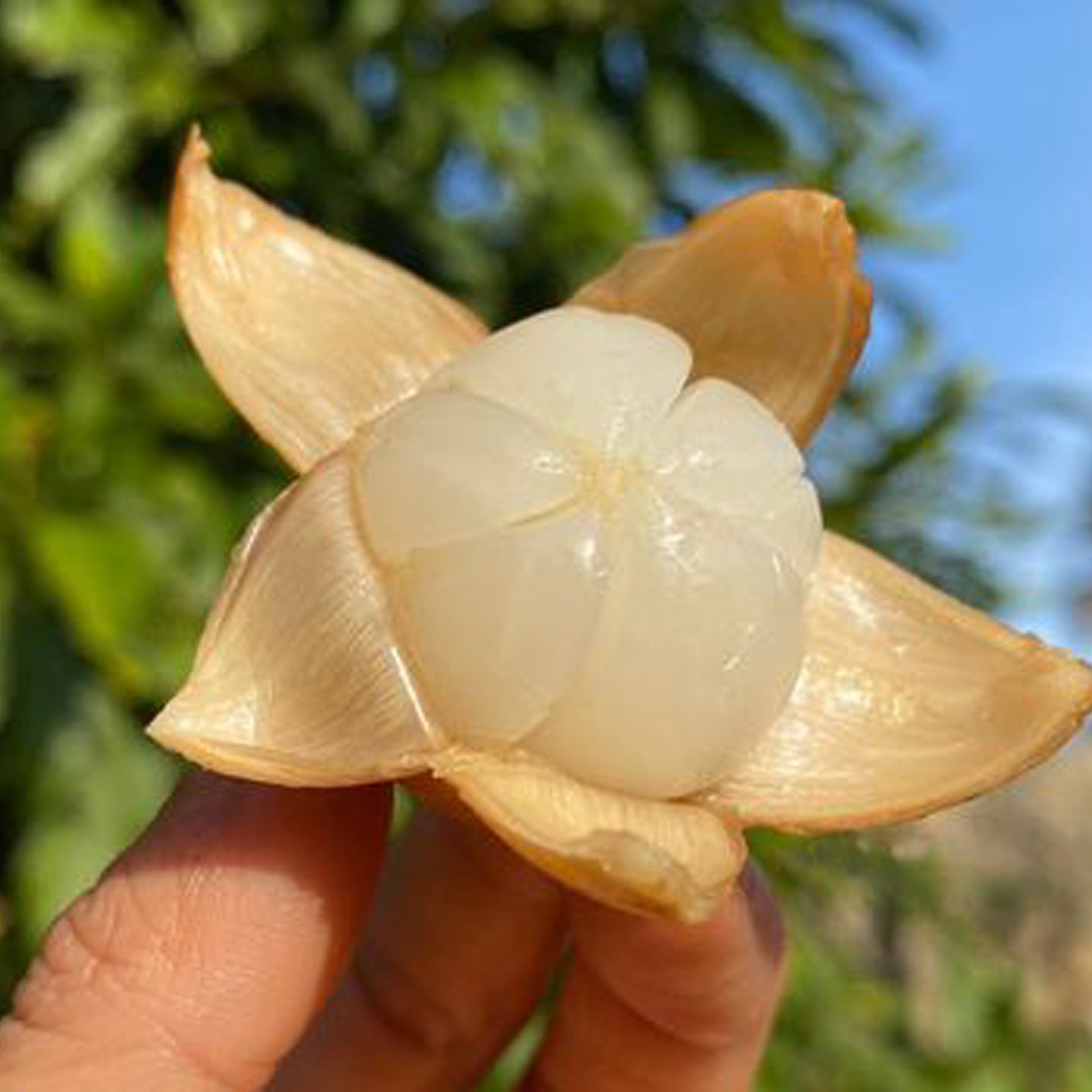
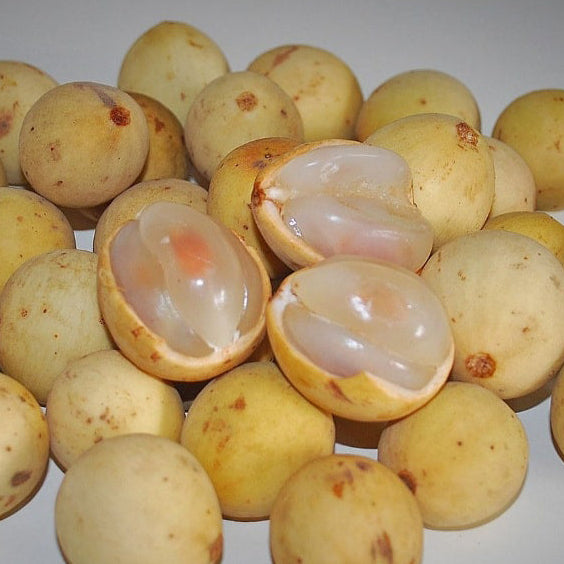
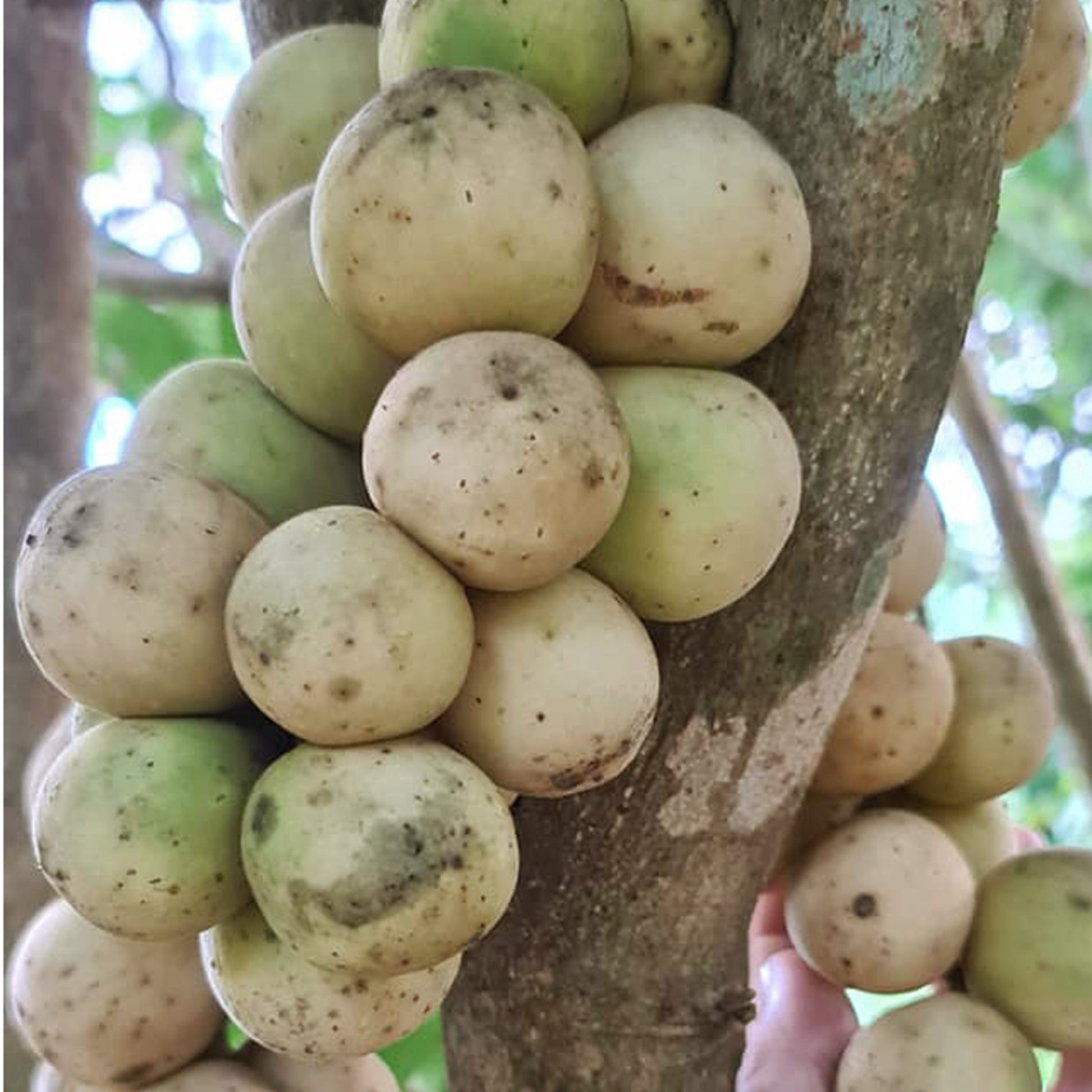
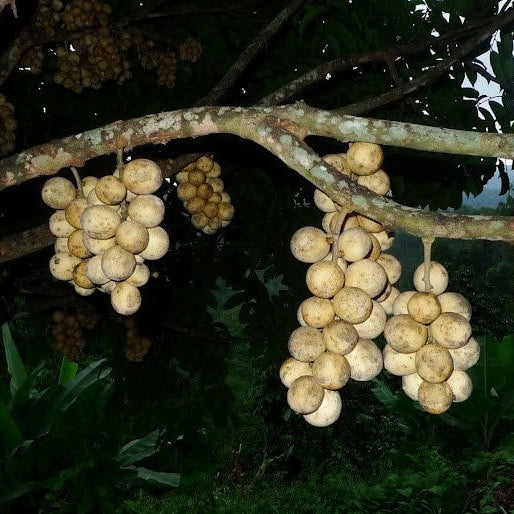
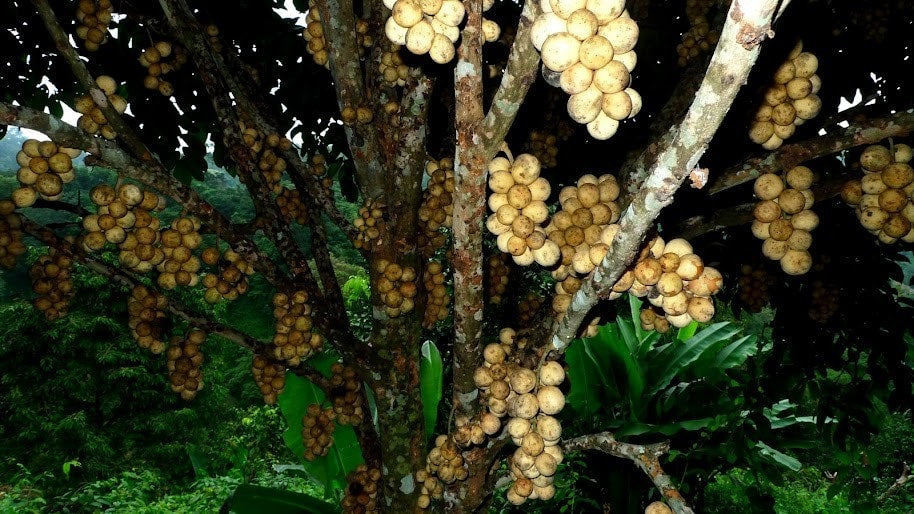
Veliyath Gardens
Couldn't load pickup availability
Langsat (Lansium Parasiticum): A Tropical Treasure for Your Garden
Langsat, scientifically known as Lansium parasiticum, is an exquisite tropical fruit cherished across Southeast Asia. Known by various names, including Lanzones in the Philippines and Duku in Malaysia and Indonesia, this fruit is prized for its juicy sweetness, delicate acidity, and wealth of health benefits. The Langsat tree is a rewarding addition to any fruit garden, offering both shade and abundant fruit when mature. A true tropical delight, Langsat is a must-have for fruit enthusiasts who appreciate rare and nutritious exotic fruits.
Langsat is widely known by different names across regions, reflecting its popularity and cultural significance:
Common Names: Langsat, Lanzones, Duku
Botanical Name: Lansium parasiticum
Native to: Malaysia, Indonesia, Thailand, and the Philippines
Family: Meliaceae (Mahogany family)
Langsat fruits are small, round to oval, and resemble miniature potatoes in appearance. They grow in grape-like clusters on the tree and have a thin, leathery skin that varies from light yellow to pale brown. When peeled, the translucent, juicy flesh is revealed, divided into 4-6 segments. The taste of Langsat is often compared to a blend of grapefruit, lychee, and pomelo, with a balance of sweetness and tanginess. Some segments may contain seeds, which are bitter and inedible.
Sweet and Tangy: A refreshing combination of mild citrus-like tartness and honeyed sweetness.
Juicy and Aromatic: The pulp is soft, succulent, and exudes a delightful tropical fragrance.
Smooth Texture: Almost fiberless, making it easy to enjoy fresh.
Langsat is not just delicious but also packed with essential nutrients that contribute to overall health.
Calories: ~57 kcal
Carbohydrates: ~14g
Protein: 1g
Fiber: 2.3g
Vitamin C: 9 mg (boosts immunity and skin health)
Vitamin A: 30 IU (supports vision and skin health)
Potassium: 275 mg (aids in heart health and muscle function)
Calcium: 20 mg (essential for bone strength)
Iron: 0.9 mg (supports red blood cell production)
Enhances Skin Health: Rich in antioxidants and Vitamin C, Langsat promotes a youthful glow and reduces skin damage caused by free radicals.
Boosts Energy Levels: The natural sugars provide an instant energy boost, making it an excellent snack for active individuals.
Supports Digestive Health: Its dietary fiber aids digestion, prevents constipation, and supports gut health.
Strengthens Immunity: Vitamin C and other antioxidants help strengthen the body’s defense system against infections.
Promotes Heart Health: Potassium regulates blood pressure, reducing the risk of heart disease.
Aids in Weight Management: Low in calories and high in fiber, it promotes satiety and prevents overeating.
Langsat is highly versatile and can be enjoyed in various ways:
Fresh Consumption: Best eaten raw, simply peel and savor the juicy segments.
Juices and Smoothies: Blends well with other tropical fruits for a refreshing drink.
Candied and Preserved: Often used in syrups, jams, and jellies.
Desserts: Enhances the flavor of fruit salads, puddings, and ice creams.
Dried Langsat: The fruit can be sun-dried for a chewy, tangy treat.
Fermented Products: Used in some regions to make fruit wines and liquors.
Langsat is a rewarding yet moderately challenging fruit tree to grow, requiring proper care and attention.
Climate: Prefers warm, humid tropical conditions with regular rainfall.
Soil: Thrives in well-drained, loamy soils rich in organic matter.
Sunlight: Requires partial to full sunlight for optimal growth.
Watering: Needs consistent moisture, especially during the dry season.
Temperature: Best suited for temperatures between 20-35°C.
Time to Fruit: A grafted Langsat tree starts bearing fruit in 4-5 years, while a seed-grown tree may take over 10 years.
Flowering and Fruiting Season: Typically produces fruit between July and September, depending on the region.
Tree Size: Can grow up to 30 meters in height but can be pruned to a manageable size in home gardens.
Fertilization: Apply organic compost and balanced fertilizers rich in potassium to support fruiting.
Pruning: Trim weak branches to encourage better air circulation and fruit production.
Pest Control: Watch for common pests like fruit borers and leafhoppers; neem oil and organic sprays can help prevent infestations.
Harvesting: Pick the fruit when the skin turns pale yellow for the best flavor.
Room Temperature: Fresh Langsat can be stored for 3-5 days.
Refrigeration: Extends shelf life to about 10-14 days.
Freezing: The peeled fruit can be frozen for long-term use.
Drying: Sun-dried Langsat is a popular method to enjoy the fruit beyond its season.
Langsat holds a special place in various Asian cultures:
Symbol of Prosperity: In some regions, the fruit is associated with good fortune and abundance.
Used in Traditional Medicine: The bark and seeds are used in folk remedies to treat fevers, digestive issues, and skin ailments.
Festivals and Celebrations: The fruit is a highlight of harvest festivals in Southeast Asia.
Exotic and Unique: A rare fruit that adds diversity to your home garden.
Health-Packed: Loaded with essential vitamins and minerals.
Shade and Beauty: A lush, green tree that enhances the aesthetics of any garden.
Culinary Versatility: Offers multiple uses, from fresh eating to gourmet recipes.
Sustainable Choice: Supports biodiversity and contributes to environmental well-being.
Langsat is more than just a tropical fruit—it is a fusion of delightful flavors, rich nutrition, and cultural heritage. Growing this plant in your garden is a rewarding experience, bringing you closer to nature while offering a delicious and healthy treat. Whether enjoyed fresh, blended into juices, or used in traditional recipes, Langsat adds an irresistible charm to any fruit collection. Experience the magic of Langsat—bring home a tree from Veliyath Gardens today and enjoy the taste of the tropics right in your backyard!
Climate: Prefers warm, humid tropical conditions with regular rainfall.
Soil: Thrives in well-drained, loamy soils rich in organic matter.
Sunlight: Requires partial to full sunlight for optimal growth.
Enhances Skin Health: Rich in antioxidants and Vitamin C, Langsat promotes a youthful glow and reduces skin damage caused by free radicals.
Boosts Energy Levels: The natural sugars provide an instant energy boost, making it an excellent snack for active individuals.
Supports Digestive Health: Its dietary fiber aids digestion, prevents constipation, and supports gut health.
Langsat is more than just a tropical fruit—it is a fusion of delightful flavors, rich nutrition, and cultural heritage. Growing this plant in your garden is a rewarding experience, bringing you closer to nature while offering a delicious and healthy treat.
